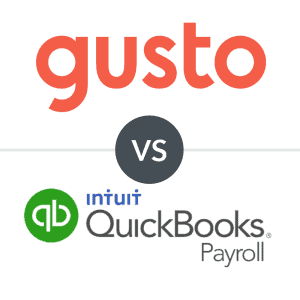What is a payroll schedule and which one is right for your small business? Find out everything you need to know about choosing the best pay schedule in this guide.
Our content reflects the editorial opinions of our experts. While our site makes money through
referral partnerships, we only partner with companies that meet our standards for quality, as outlined in our independent
rating and scoring system.
Choosing a payroll schedule for your business can be challenging because you need to consider industry expectations, your business’s cash flow, payday laws, and your administrative bandwidth. Should you pay employees weekly, bi-weekly, semi-monthly, or monthly?
This guide takes a deep dive into payroll schedules, including the different types of payroll schedules and how to choose the best pay schedule for your business.
What Is A Payroll Schedule?
A payroll schedule or pay schedule is a recurring period in which a business pays employees. A business’s pay schedule may set payday to reoccur on specific dates or at recurring intervals. Weekly, biweekly, semi-monthly, and monthly pay schedules tend to be the most commonly used recurring payroll schedules.
Why Does My Business Need A Payroll Schedule?
Businesses need payroll schedules for legal, financial, and recruitment purposes. Most states have payday laws that require businesses to set paydays at specific intervals.
For example, in California, payday laws require most employees to be paid at least twice within the calendar month, and paydays must be set in advance. In Rhode Island, payday laws require most employers to pay employees weekly.
Additionally, payroll schedules make it easy for business owners to take advantage of their business’s organic cash flow. For example, if your business tends to get paid toward the end of the month, you can set your payroll schedule to occur when your business bank account is more heavily padded.
Finally, if you work in an industry that traditionally pays employees at a specific interval, setting a pay schedule that aligns with that interval can help you avoid scaring off potential employees when you are hiring. You’re also likely to improve your current employees’ morale, because everyone likes getting paid regularly.
Types of Pay Schedules
| Pay Schedule |
Paydays Per Year |
| Weekly |
Employees are paid more often for a total of 52 paydays per year. |
| Bi-weekly |
Employees are paid every other week for a total of 26 paydays per year. |
| Semi-monthly |
Employees are paid twice a month for a total of 24 paydays per year. |
| Monthly |
Employees are paid once a month for a total of 12 paydays per year. |
Pay schedule is defined by your pay period and your pay date. When and how often will you pay your employees? There are four major prevailing pay schedule types businesses may choose when setting up payroll:
- Weekly
- Bi-weekly
- Semi-monthly
- Monthly
Each type has its own pros and cons, and assessing the right fit will boil down to what works best for your business and your employees. However, it’s important to note if your state has a minimum payroll frequency requirement or other payday requirements based on industry.
The Weekly Pay Schedule
Pros
- Employees are paid more often
- Easier to calculate overtime
- Trade standard (construction, warehouses, plumbing, and more)
- Takes advantage of unlimited payroll runs in some payroll software
Cons
- More payroll runs may mean more fees
- More admin work
- Not suited for businesses with non-steady payment
The weekly schedule means employees are paid every week for 40 hours of work, usually on a Friday, with 52 paychecks a year.
The Bi-Weekly Pay Schedule
Pros
- Less expensive than weekly payroll
- Less time-consuming than weekly payroll
- Employees are paid frequently
- Easy payment tracking for employees
Cons
- Leap years can cause accounting headaches
- More administrative work than semi-monthly
The bi-weekly schedule means employees are paid for their work every two weeks, usually on a Friday, for 26 (or 27) total payments a year. With the bi-weekly method, two months out of the year, employees will be paid three times a month, and the way weeks fall year-to-year will impact whether you issue 26 or 27 paychecks annually (Leap Year, you sly little troublemaker).
The Semi-Monthly Pay Schedule
Pros
- Best for salaried employees
- Regular paydays
- Tax filing dates align well with reporting cycles
-
Cons
- Inconsistent pay dates due to holidays
- Harder to calculate overtime
- Pay schedule doesn’t always line up with the work week
The semi-monthly schedule pays employees for their work twice a month, usually on the 1st and 15th (or 15th and 30th) of the month, for 24 payments a year. How is this different than bi-weekly? Under the semi-monthly plan, paychecks are consistent and there are only two paydays per month. Employees receive fewer and slightly bigger paychecks on the semi-monthly schedule.
The Monthly Pay Schedule
Pros
- Least time-consuming
- Less administrative work
- Fewer fees for single payroll run
Cons
- Payday inconsistency due to holidays
- Not favored by employees (especially hourly)
- One big bill at the end of the month
Employees are paid their hourly or salaried earnings once a month, usually toward the end of the month, for 12 payments a year.
How Many Paydays Are In A Year?
The number of pay schedules in a year depends on the payroll schedule your business operates under. Here’s a breakdown of how many paydays are in a year based on the pay schedule your business uses:
- Weekly Pay Schedule: 52 paydays a year
- Bi-Weekly Pay Schedule: 26 paydays a year (27 depending on leap years)
- Semi-Monthly Pay Schedule: 24 paydays a year
- Monthly Pay Schedule: 12 paydays a year
How To Choose The Right Pay Schedule
Choosing a pay schedule depends on the time you can commit to payroll and any state requirements you need to follow. If you pay employees a salary, calculating hourly wages may be less of a concern. So, as you try to marry your needs and wants, ask yourself these questions:
- Do I have the hours/ability to commit to a weekly payroll?
- Do I have a professional/service calculating payroll taxes/deductions?
- How much is my time worth?
- What method of payment would my employees prefer?
- Does my payroll service charge per payroll run?
- Do I want every Leap Year to make me irrationally angry at the universe?
- Does my state have a minimum paycheck requirement?
- What does my monthly cash flow look like?
- Does my industry offer overtime? Which pay schedule is best for calculating overtime?
- What is the industry standard pay schedule?
The Bottom Line On Payroll Schedules
Ultimately, the pay schedule you choose should align with the law and your business’s needs (financial and otherwise), whether you opt for a monthly, semi-monthly, bi-weekly, or weekly pay schedule.
There are many cloud-based payroll software options for small businesses and some of those even allow for different pay schedules depending on employee type. We recommend Gusto as a place to start for full-tax services with competitive pricing. However, the best payroll software is flexible enough to handle your business’s unique payroll needs, from tax compliance to setting multiple pay schedules.












